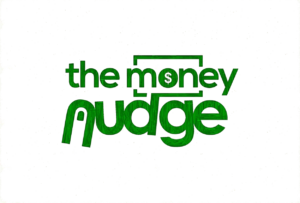Why First Time Home Buyers Should Be Wary Of 30 Year Fixed Rate Mortgage Group Think.
“If everyone is thinking alike, then somebody isn’t thinking.”
― George S. Patton Jr.
When discussing mortgages there are a lot of preconceived notions and misinformation out there. In today’s low interest rate environment we are so focused on where rates are going we fail to ask the home buyer the most important qualifying question: “How long do you plan on staying in the home?” The whole point of personal finance is that it is indeed “personal” in nature, with one buyer’s situation being very different from another. Although a 30 year fixed rate mortgage may be the best for most people, it may be inappropriate for others. Unfortunately we are seeing too many 30 year fixed rate mortgages being sold to first time home buyers that may not need them. The result is wasted money due to interest.
An example I ran across at a social gathering is a case in point of this phenomenon. My friend, a single guy, had just bought a home. He discussed at length that it was a starter home and his time horizon was more based on fixing it and upgrading within the next few years. After hearing this story, I asked how he financed his purchase, and to my surprise he was in a 30 year fixed rate mortgage. Ouch!
THE REALITY
The reality for first time home buyers and younger adults is that they just don’t stay in their homes or condos very long. It is later home purchases in one’s life cycle that tend to have a longer length of stay as children enter the picture and people stay rooted in their communities in their later years. According to the National Association of REALTORS® and its 2015 Home Buyer and Seller Generational Trends Report, the typical under-40 home buyer expects to live in their home for a period of 10 years. In some urban markets the holding period is even less.
TALE OF THE TAPE
After doing some digging on some industry averages, I looked at the 7-year, and 10-year ARM as well as the 30-year fixed rate loan to provide some illustrative comparisons. The assumptions I made was a $400k mortgage, a duration of 10 years, the max interest rate increase for both ARM products, and that any interest savings in the intro period were reinvested to pay down more principal. The results for the 30 year mortgage after the ten year period was ~$135k in interest paid. The 10- year ARM was ~$122k in interest with the 7- year ARM breaking even with the 30 year around the 9 and a quarter year mark, assuming an interest rate doomsday scenario. The 10 year ARM broke even with the 30 year under the same criterion around the 11 and three quarter year mark. Assuming the a lower end of the holding period (7 years) the ARMs obviously fair better. 30 year interest checking in at 98k in interest, 10 year at 89k, and the 7 at 80k respectively.
CONCLUSION
When looking at mortgages, the duration element is the largest factor to consider. The point of the piece is to raise awareness that the 30 year mortgage is by no means a slam dunk, no product ever is. That is why we must analyze our personal situation prudently and challenge basic consensus if it doesn’t meet our goals and objectives. If you’re buying a house and planning on staying 12 years or less you may want to change how you are thinking when you shop for a mortgage.
Home Purchases Series: This is one post in a series pertaining to the home buying experience. Stay Tuned!
Disclaimer: The article is not a recommendation of any financial products, it is merely for educational purposes.
More: Aaron Connell is a writer and Principal of One Brick Planning & Consulting, a Gen Y focused financial services practice. Have a question for Aaron? Email him at aaron@themoneynudge.com.

